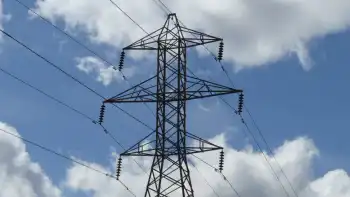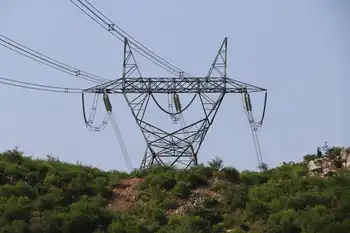iPods plus lightning equals injury
By Associated Press
Arc Flash Training CSA Z462 - Electrical Safety Essentials
Our customized live online or in‑person group training can be delivered to your staff at your location.

- Live Online
- 6 hours Instructor-led
- Group Training Available
The man, who played in a church orchestra and was listening to religious music on an iPod while he ran, was injured when lightning struck a nearby tree, then snaked out to zap him as well.
His eardrums were ruptured, his jaw was fractured and he suffered first- and second-degree burns on his chest – where the device was strapped – up into his ear channels, along the trail of the iPod's trademark white earphones.
He also had burns down his left leg and on the foot, where the electricity exited his body, blowing his sneaker to smithereens in the process.
Last summer, a Colorado teen ended up with similar injuries when lightning struck nearby as he was listening to his iPod while mowing the lawn.
Jason Bunch, 18, says it wasn't even raining last July, but there was a storm off in the distance. Lightning struck a nearby tree, shot off and hit him.
Bunch, who was listening to Metallica while mowing the grass at his home in Castle Rock, Colo., still has mild hearing damage in both ears, despite two reconstructive surgeries to repair ruptured eardrums.
He had burns from the earphone wires on the sides of his face, a nasty burn on his hip where the iPod had been in a pocket and "a bad line up the side of my body," even though the iPod cord was outside his shirt.
Emergency physicians report treating other patients with burns from freak accidents while using personal electronic devices such as beepers, Walkman players and laptop computers outdoors during storms.
Dr. Eric Heffernan, lead author of a report on the Vancouver incident to be published today in a letter to The New England Journal of Medicine, said the jogger's experience ought to be a cautionary tale for anyone wearing earphones outdoors during a thunderstorm.
"Using things like this, a mobile phone or an iPod, there isn't actually an increased risk (of incurring a lightning injury)," Heffernan said from Vancouver.
Heffernan is a radiologist at Vancouver General Hospital, where the hapless (and unidentified) jogger was treated in the summer of 2005.
"But we just suggest that if you are unlucky enough to be hit by lightning while listening to anything with earphones, you may be more likely to do yourself some damage."
The man in question certainly did. When Heffernan contacted him to alert him to the pending publication of the story, the man, now 39, gave Heffernan an update on his status two years later.
He has about 50 per cent hearing loss in both ears and wears two hearing aids. He no longer plays in the church orchestra because of his hearing deficit. "There are probably many notes he can't hear," Heffernan said.
In addition to the perforated tympanic membranes (eardrums), the man suffered dislocation of the tiny bones in the middle ear known as the ossicles, which conduct sound to the cochlea of the inner ear.
Surgery was needed to patch the eardrums with grafts as well as to reset the jaw, which was dislocated from both joints, and to fix the bone, which had been broken in four places.
Heffernan said with this type of damage to the jaw it's likely the man will develop arthritis in it, and at an early age. People who witnessed this close encounter of the electrical kind reported the man was thrown about 2.4 metres by the lightning's impact.











